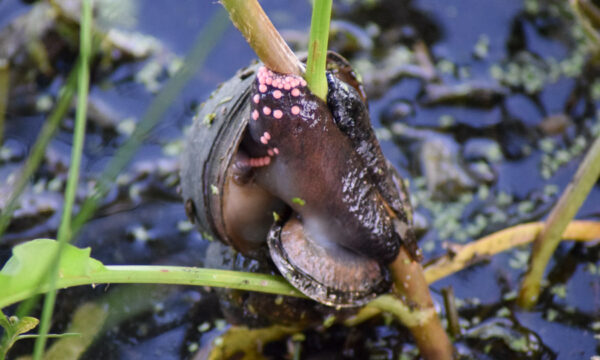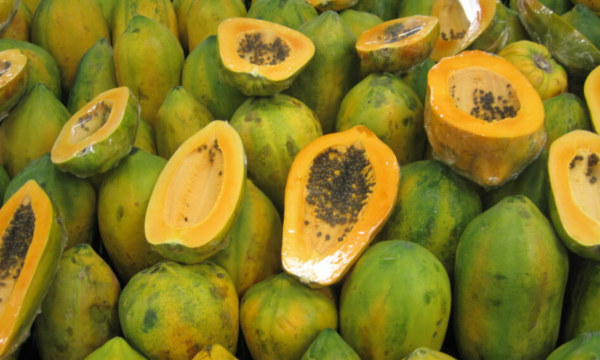The global damage caused by the South American tomato leafminer (Phthorimaea absoluta) poses a significant threat to tomato production worldwide, including in Vietnam. Since its first official recording in Son La province in 2019, tomato growers have faced potential crop losses of 80–100%. A combination of its spread and ability to develop resistance to pesticides has led to traditional chemical control methods becoming increasingly ineffective. This highlighted the need for more sustainable and integrated management approaches.

In response to these challenges, a recent webinar brought together leading experts to share their insights and experiences. The webinar, “Management of Tomato Leafminer (Phthorimaea absoluta): Global Perspectives and Solutions for Vietnam”, was organized by the Plant Protection Research Institute (PPRI), Vietnam Academy of Agricultural Sciences (VAAS), and CABI – who have been supporting smallholder farmers in Vietnam is through the PlantwisePlus programme.
The webinar featured presentations by:
- ● Dr Nguyễn Văn Liêm, Director of PPRI VAAS Vietnam;
- ● Dr Malvika Chaudhary, Global Team Leader, Digital product usage, CABI;
- ● Assistant Prof. Antonio Onofre Costa and Miranda Soares from the University of the Azores, Portugal;
- ● Dr V. Sridhar from the Indian Institute of Horticultural Research (ICAR); and
- ● Dr Debraj Adhikari from Nepal’s Plant Quarantine and Pesticide Management Centre.
Practical strategies for managing tomato leafminer in Vietnam
The webinar provided an overview of the biological and ecological impact of tomato leafminer, as well as providing examples of practical strategies for its management. The speakers highlighted the impact of P. absoluta on global tomato production, and shared their insights of its characteristics, biology, and the extent of damage it can cause.
Biological control methods that are crucial for managing P. absoluta without exacerbating pesticide resistance issues were also presented in the webinar. In addition, the discussion covered a range of Integrated Pest Management (IPM) strategies, including the use of light and pheromone traps, physical control measures, and the strategic application of both biological and chemical controls.

Sharing science-based knowledge
The experts shared invaluable information that is particularly relevant for stakeholders in Vietnam where knowledge on managing P. absoluta is still developing. A greater understanding of the pest’s biology is key, particularly the life cycle and damage caused by the tomato leafminer. This is essential for developing effective management strategies.
The speakers also highlighted the importance of identifying and mass-rearing natural enemies of P. absoluta, that could offer a promising, sustainable alternative to chemical pesticides. This is particularly so if their application and production is scaled up.
Furthermore, they saw a critical need to develop and implement a robust IPM protocol that incorporates the use of light and pheromone traps alongside biological control methods.
To mitigate the impact of P. absoluta in Vietnam, the experts in the webinar highlighted that as well as mass-rearing natural enemies, adopting improved trapping techniques is key. This includes the development and widespread use of light and pheromone traps to monitor and control P. absoluta populations.
Raising awareness in Vietnam’s farming communities is key
Reflecting on the webinar, Muhammad Faheem, Integrated Crop Management Advisor for CABI, said “The webinar underlined the urgency of raising awareness among farmers and local extension staff about the South American tomato leafminer and adopting sustainable management practices to combat this pest in Vietnam. It is essential for public, private, and development sector stakeholders to collaborate in addressing this issue. This includes educating farmers on pest diagnosis, providing short-term solutions, and urgently initiating pilot trials for light and pheromone traps.”
The Vice President of VAAS, Dr Dao Thi Anh, also stated, “By focusing on biological control and IPM strategies, stakeholders can better protect the tomato industry from this invasive pest while aligning with broader goals of sustainable agriculture.”
As a follow-up to this webinar, CABI, in collaboration with VAAS, PPD and PPRI plans to develop awareness material for farmers (e.g. a pest management factsheet, posters, identification guides). The team also plans to conduct training sessions in major tomato-growing regions such as Son La province. Additionally, CABI will be engaging with local partners to devise long-term strategies to sustainably manage P. absoluta across Vietnam
Additional information
To watch the webinar, click here (please note that the webinar is in Vietnamese. To listen in English, select the English translation in the video navigation bar). Upon entry, enter the passcode: ^m26nh^a
To download the presenter slide decks, click here.
CABI Compendium: Tomato leafminer portal
PlantwisePlus gratefully acknowledges the financial support of the Directorate-General for International Cooperation (DGIS), Netherlands; European Commission Directorate General for International Partnerships (INTPA, EU); the Foreign, Commonwealth & Development Office (FCDO), United Kingdom; and the Swiss Agency for Development and Cooperation (SDC).
Related News & Blogs
How does crop rotation help keep pest populations in control?
Crop rotation is a simple, effective way to manage pests, improve soil health, and boost yields. Suitable for all growers, crop rotation supports sustainable agriculture and reduces the need for chemical inputs. By targeting pest lifecycles and reducin…
6 June 2025




